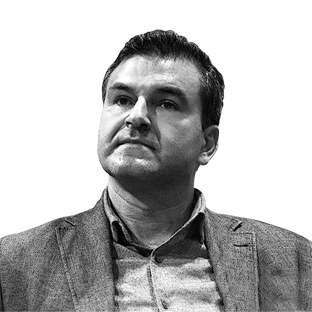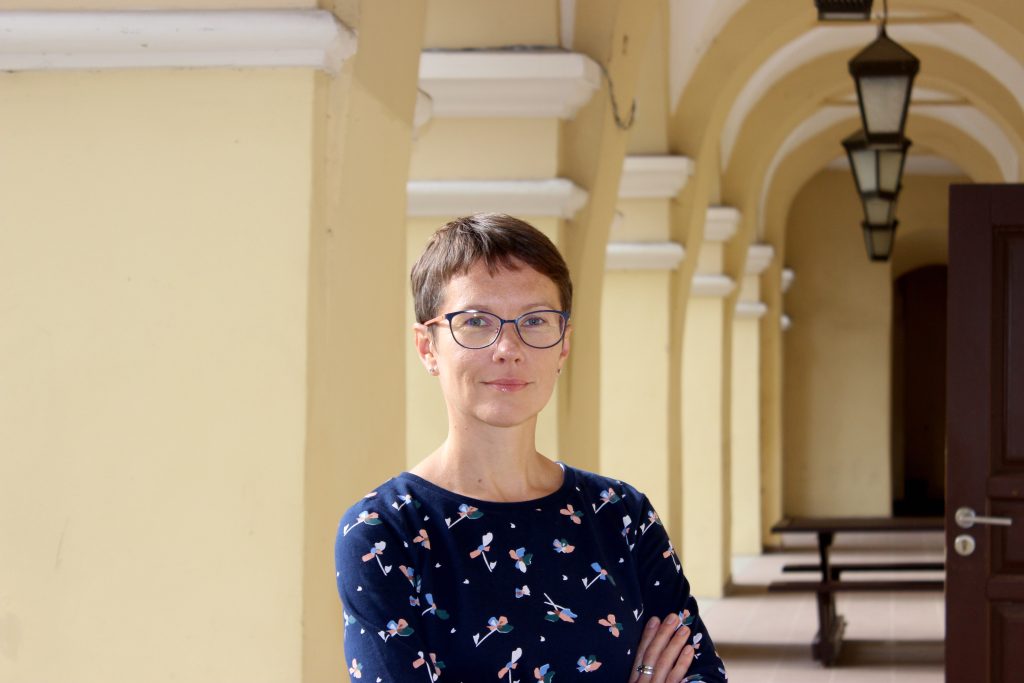Liberalism is good if God exists and is liberal

« I believe in God and the markets. » Kenneth Lay, President of Enron
Phrases such as “all tax is theft” or “the rich are the true poor, for the state takes them everything” translate an idealized view of immaculate liberalism, which, if each one acts exclusively in their own interest, will emerge, by a kind of moral alchemy, a harmonious, just and prosperous society, obeying supposed natural laws. (In Portugal, the phrases between quotes even seem true… It’s irony, of course.)
In this logic, each individual, following his interest, would contribute – as in magic – to a higher social order, guided by an “invisible hand” which is the order that should overlap with any kind of regulation. For classic liberals, however, this hand was not truly invisible: for it was not that divine providence and or a moral order prior to markets.
Adam Smith, in his work An investigation into nature and the causes of nations’ wealthstates that it is self -interest – not benevolence – that drives economic progress and innovation. The selfishness of a carving, when looking for its profit, ends up benefiting, involuntarily, the customer. This is one of the great myths of liberalism – and one of the most harmful to the organization of human societies, save, of course, for those who control such an invisible hand.
Friedrich Hayek, in applying the concept of freedom to the economy, argued that it would work as « the high tide that raises all the yachts. » Already John Kenneth Galbraith, more critical, compared this liberal belief to the theory of “horse and sparrow”: we feed the horse with oats and some will fall along the way to the sparrows. In either case, central conviction is the same: giving rich more will end up benefiting everyone – but at what cost? And what kind of society is built with this logic?
Own interest and the pursuit of profit are part of human nature, but in liberalism they are elevated to unique organizing principles of social behavior. This belief became the normative foundation of liberal doctrine, dramatically corroding social cohesion and deforming the very understanding of human nature.
In practice, the most skilled selfishness become increasingly rich and powerful; The less sagges, increasingly poor and marginalized. The first strategies become dogmas. Values such as solidarity, compassion, ajuda and community sense are relegated or converted into transacible products.
Free initiative – a fundamental element of life in society -, when absolutized as a unique principle of social organization, gave rise to amoral and predatory capitalism, the commodification of culture and the erosion of civilizational achievements. The world has become a megacorporation; humans, employees and consumers; Reality, a media staging.
The myth of the “free market” promised to contain the magic formula of prosperity, guaranteed by its self -regulation – a miracle ensured by the “invisible hand”. However, this belief turned out to be a monumental fraud: self-regulation began to justify all dysfunctions as opportunities for improvement. The market was designed as the “best possible worlds” – an economic version of pangloss optimism.
It is true that the unin -nationalized market was effective by generating greater material wealth for a higher number of people. However, total commodification spread to domains that should remain immune: feelings, culture, education, citizenship, health, family life and even the relationship with death.
Trading, negotiate, exchange: These are essential human practices. But liberal worldview, in reducing the human to the logic of calculation and exchange, impoverished the very idea of humanity.
Adam Smith, a civil servant, not only built an economic theory, but proposed a new political-philosophical paradigm. Hypertrophy of this vision-a world without coercion, based on the pure spontaneity of individuals-has become a utopia disconnected from social reality.
Respect for private property, free enterprise and political freedom is undoubtedly a valuable civilizational heritage. But modern liberalism has alienated these principles by converting them into dogmas divorced from their community and ethical dimension.
Frédéric Bastat, nineteenth -century French economist, embodies this liberal ingenuity well. Critic of statizing socialism-which actually generated new forms of servitude-opposed him a remedy that, brought to the extreme, leads to other delusions: market tyranny, totalitarianism of competition.
Bastist believed that if each one followed his own interest, he would, even unintentionally, to benefit everyone. The laws of the world would naturally tend to universal harmony.
Seeing in the state only the heir to monarchical absolutism, Bastist ignored that without a righteous state-or before a state captured by the most powerful-freedom becomes privilege of the strongest and most selfish.
The hyperliberal idealizations of the twentieth and twentieth centuries – stateless society, based exclusively on private property and individual interest – are already outlined in Bastist’s writings. Caricatic examples of this logic are the creditor’s concern for the debtor’s health or the landlord for the tenant’s welfare-not for compassion, but because of its income. This simplistic and utilitarian view of human relations is at the heart of libertarian liberalism.
Bastist confuses legitimate criticism of abusive protectionism with the refusal of protecting the most fragile. His freedom defense inadvertently ends up being the defense of the most cunning, the most successful-and the abandonment of those who most need justice and equity.
The predatory capitalism of contemporary hyperliberalism deliberately ignores the responsibility of reinvesting in communities. Labor rights, for example, are often seen as improper privileges; state regulation as an obstacle to profit; Social life, like Darwinista Arena.
Bastist’s misunderstanding of the role of a “good condition” resonates in misleading phrases such as: « The state is the great fiction through which everyone seeks to live at the expense of all others. »
Bastist saw freedom, property and personality as natural rights granted by God. Adam Smith, although not explicitly by the way, suggests that the “invisible hand” and the spontaneous order of the market imply a natural or divine moral order. Without this transcendent anchor, what meaning makes these principles today as absolute dogmas?
The importance of God and/or this previous order in the foundations of classical liberalism is undeniable – and deeply paradoxical. The spontaneous order defended by authors such as Smith or Bastist presumed an idea of natural justice and a providential conception of the world. Without this transcendent foundation, liberal belief in the automatic harmony of individual interests loses substance and becomes a fragile, voluntarist ideological construction.
As they warned thinkers such as Alasdair Macinthre and Charles Taylor, a society that reduces moral life to free choice and social life to mercantile competition destroys the very possibility of a shared common good. Without God-or at least without a robust conception of human nature and justice-liberalism becomes as dehumanizing dystopia as the totalitarisms it sought to overcome. Its triumph would be, like communism, that of the denial of true humanity.
But beware: in realities like Portuguese-societies asphyxiated by a socialist statism, whether or not it has a « d » at the end of the acronym-where even the « liberal » party repels the liberals themselves, it is evident that we need some good doses of liberalism. That is, of less state, less paternalism, more individual freedom, more autonomy and greater sense of self-responsibility. These are minimal conditions for any country that aspirs to be truly modern and democratic.







